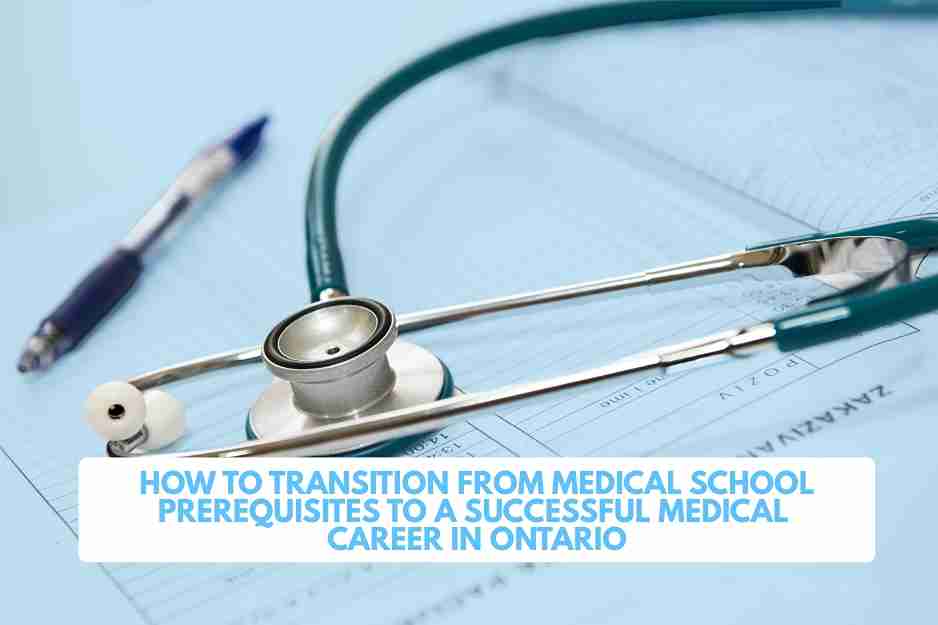It’s that time of year again! Students are finishing up exams, the weather is getting warmer, and a bunch of you are…getting ready to write the Medical College Admission Test (MCAT). I know it can feel like an intimidating task and sometimes you don’t know how or where to get started. So, I’ve listed out my top 5 tips for MCAT prep! Before going through them, remember that everyone has a different way of approaching the exam; something that worked for me may not work for you. These tips are just my personal opinion about what I found helpful. I do hope they aid you in optimizing your own study strategies this summer!
My Top 5 Tips for Navigating the Medical College Admission Test (MCAT) Prep:
1. Reflect on how you learn best!
Each person learns in a different way! For some people, reading textbooks seems to do the trick, while for others, going to class and listening to a lecture works better. When it comes to the MCAT, you need to take some time and reflect on what study strategies have worked for YOU in the past. Just because your best friend happened to read 5 textbooks for MCAT prep doesn’t mean you need to do the same thing!
Along with reflecting on how you learn best, take some time to analyze the skills you already have. Maybe you already took an organic chemistry or physics or biology course? Maybe you have no background in science? Depending on your unique circumstance, you’re going to have to choose between studying to obtain the required knowledge and studying to refresh your memory.
For instance, during my prep summer, I had just finished my second year of life science, having taken many of the biology, chemistry, and physics courses. However, I had never taken psychology or sociology. I also know that I’m a visual learner and only reading textbooks doesn’t stick well with me. So, for my study strategy: I went through the syllabus of topics covered in bio/chem/physics and only reviewed the concepts I had forgotten (rather than everything) by watching YouTube videos. For the sociology and psychology sections, I studied more comprehensively by reading textbooks, making key notes, and then watching videos to reinforce those concepts. This saved me a lot of time that I may have otherwise spent reviewing things I already knew or inefficiently studying.
2. Do a practice test before starting your study schedule to assess your baseline knowledge
Before even making a study plan, do a practice MCAT test! You’ll be surprised by what you do and do not know as well as the areas of strengths and weaknesses. You can take this information to help direct what topics you may want to spend more time reviewing. It will also give you a good idea of your baseline score for the MCAT and perhaps help you better frame how you can get from the current score to your goal.
When doing this initial test, just remember to NOT be worried or demotivated by your initial scores. My practice test was not even close to the score I was aiming for, and it was a little scary thinking about how I would go from the current situation to my goal. Just take a deep breath and remember that progress will happen with time and practice. As you practice and collect more knowledge while studying, you will see massive improvement!
3. Focus on developing your critical thinking skills
In my opinion, one of the biggest misconceptions about the MCAT is that it tests knowledge. In fact, most of the time the information you need to answer questions will be provided to you in the passage. The exam is looking to assess if you can take that information, synthesize it, and apply it to answer the questions. So, remember when you are studying that it’s not the content they are assessing – it’s your understanding of the content. After every section you study, take some time to apply the knowledge you just obtained (through question banks, chapter-end questions etc.). This will help you assess if you understand what you read or simply memorized it. Don’t fret too much on memorizing the details; try to develop your application skills.
4. Practice, practice, practice!
And on that previous note, application and critical thinking skills come with practice! The more tests you do, the better you will be. Use the exams/questions in your textbooks and, if you can, try to practice using exams from the AAMC. In addition to that, remember that you can do the exams multiple times. For me, when I was nearing the end of my prep summer, I realized that I didn’t remember the questions or answers from the practice exams I had done at the beginning of the summer. So, I did the same exams over again. This was incredibly helpful because:
- It helped me see if I was repeating any of the same mistakes I had previously made
- It refreshed my memory on my previous mistakes so that I could avoid them in the future
- It showed me how much I had progressed from the beginning of the summer, boosting my confidence!
5. Relax while you prep and before the exam
Taking breaks to enjoy your summer is just as important as studying for the MCAT! Spending time with loved ones or pursuing hobbies will help you stay refreshed and focused while studying. Especially as you approach the end of your prep summer, take some time to relax before your MCAT and remember that you’ve worked hard to get here! Another couple days of studying won’t actually make a big difference, but it could leave you really burnt out right before the MCAT. So, I know it’s easier said that done, but try not to stress too much and take care of yourself throughout the process.
MDconsultants provides preparation and guidance for the MCAT. Work one-on-one with a medical student consultant to thoroughly improve your testing abilities. For more information regarding our one-on-one consultation packages and to book an appointment today, click here!


